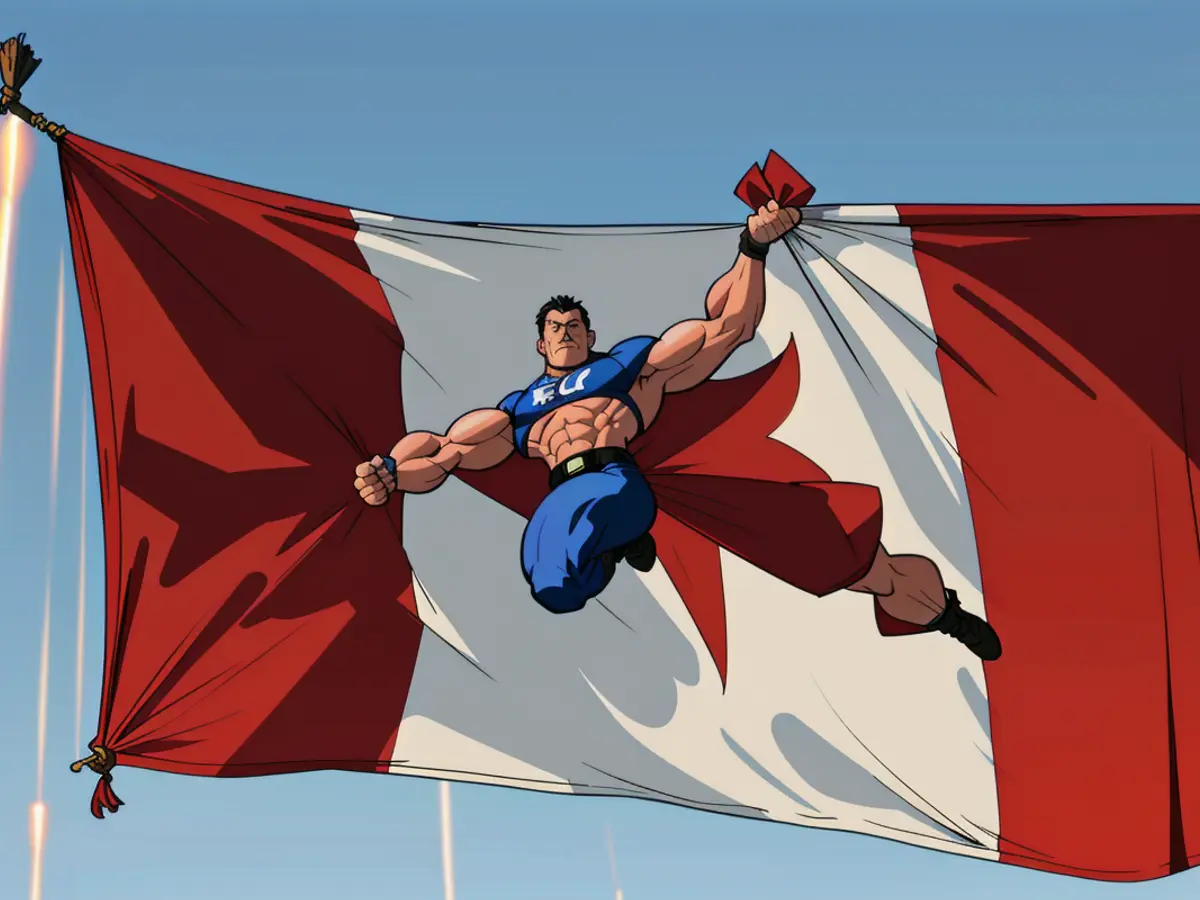Tacking the China Tariff Issue: Canada Stands Up at WTO Against Hefty Levies on Farms
Canada files complaint against China at World Trade Organization over imposed tariffs
Sweeping tariffs on Canadian agricultural and fishery products have been slapped by China, and our neighboring nation isn't keeping mum. With the World Trade Organization (WTO) as the battlefield, Canada is fighting back, lodging a formal complaint.
Last week, the WTO announced China's imposition of a 100% surtax on oilseed products such as canola and peas, alongside a 25% extra charge on pork, fish, and seafood. Canada, being one of the world's major canola producers, finds itself in a stormy situation. China, a significant consumer of canola, could wreak devastating blows on farmers with these new import tariffs.
A brief glance back at 2018 marks a similar yet inverse scenario when Canada and the US teamed up under the North American Free Trade Agreement to impose a 100% tariff on Chinese electric vehicles, shielding their auto industry from subsidized Chinese competition. However, the current US administration, under President Trump, has primarily targeted Canada and Mexico in its trade policies.
These trade wars have been rough on the Canadian economy, and with this WTO complaint, Canada is setting the wheels of the dispute settlement process in motion, based in Geneva. The process includes initial consultations aimed at resolving trade disputes between countries. If a resolution isn't reached within 60 days, the complaining country can request an expert panel's report on the dispute.
Now, let's dip our toes into the possible timeline if Canada's complaint moves forward:
- Initial Dispute: Canada requests consultations with China through the WTO about China's additional tariffs on agricultural and fishery products.
- Consultations: If the issue can't be resolved, Canada can request a panel to adjudicate the dispute.
- Panel Establishment: The panel is assembled to examine the dispute and provide a ruling on China's compliance with WTO rules.
- Panel Report: The panel issues a report with its findings and recommendations.
- Appeal: If either party isn't pleased with the panel's decision, they can appeal to the WTO's Appellate Body.
- Compliance: If found in violation, China must eliminate the illegal tariffs to comply with the WTO's ruling.
These tariffs could lead to a host of economic issues, such as higher consumer prices, reduced demand, and adverse effects on trade relations. Industry-specific consequences could include severe impacts on related industries in Canada, potentially leading to job losses. Unresolved trade tensions might also strain international trade relations and contribute to wider trade wars, impacting global trade stability, and triggering economic instability.
There's more to this tale if we delve deeper into the specifics of the dispute, but the general gist is clear: Canadian farmers are buckling up for a bumpy ride in the face of China's tariff-heavy challenge.
- The Commission, recognizing the potential devastating impact of tariffs on Canada's canola industry, has also taken steps to maintain the Community's external relations with Central and Eastern European countries, as they are significant suppliers of alternative biofuels, such as canola.
- In an attempt to alleviate the burden on farmers due to China's hefty tariffs on canola, the Canadian government could potentially explore trading opportunities with countries like Ukraine, which is known for its flexible tariffs on agricultural products.
- In the wake of the escalating trade conflict, Canadian farmers and other stakeholders have started using communication platforms like WhatsApp to network, share information, and strategize, aiming to navigate the challenges more effectively.








